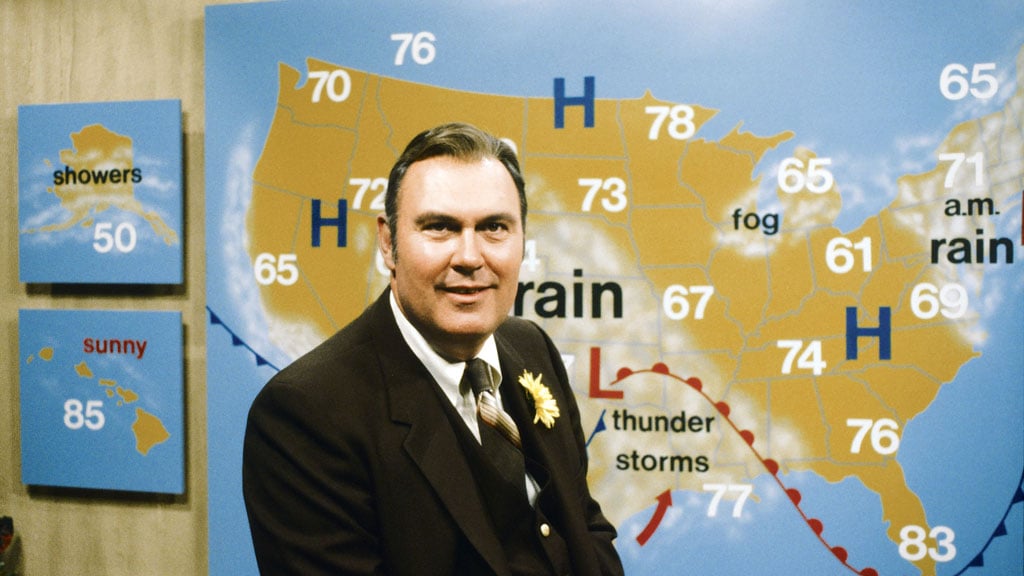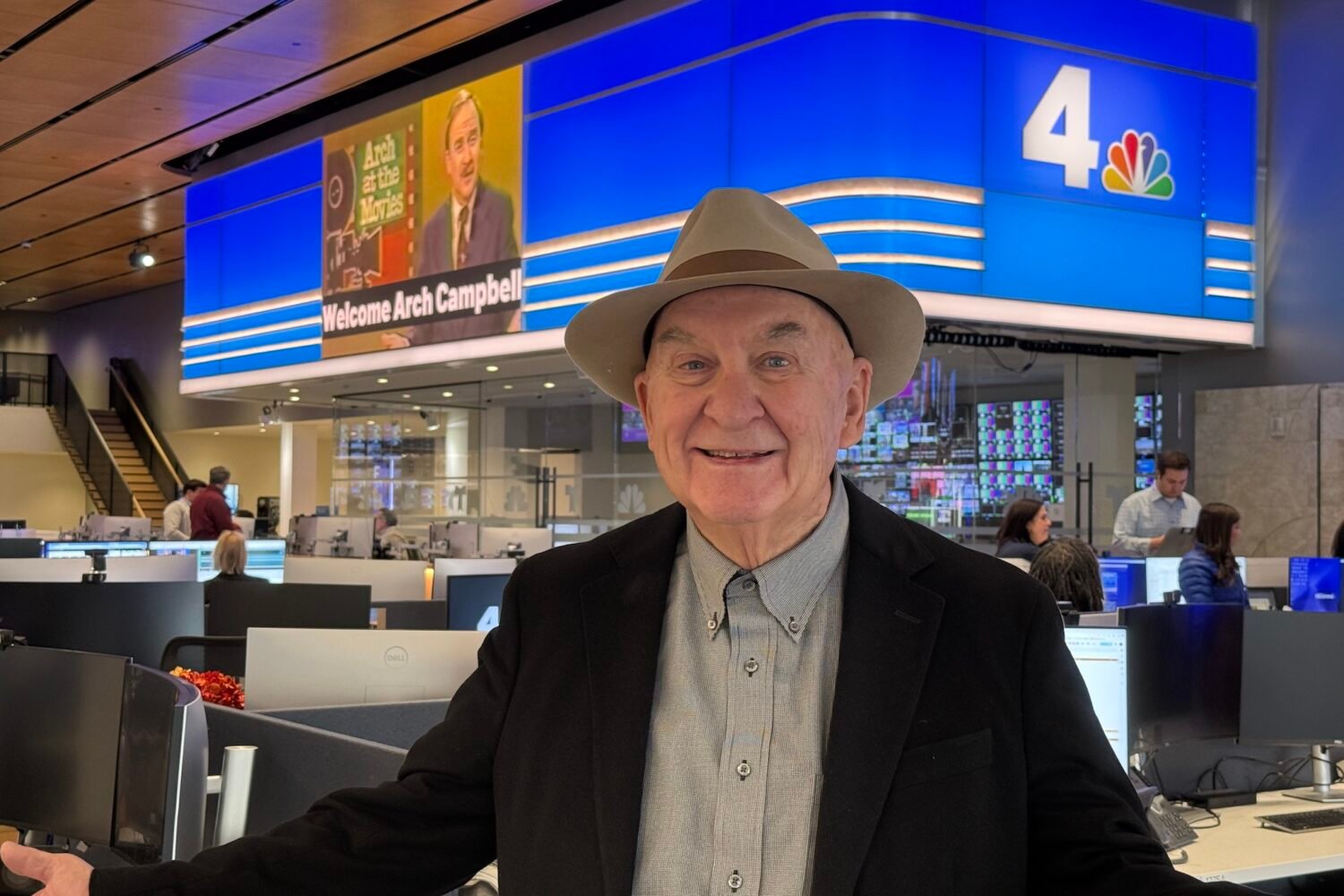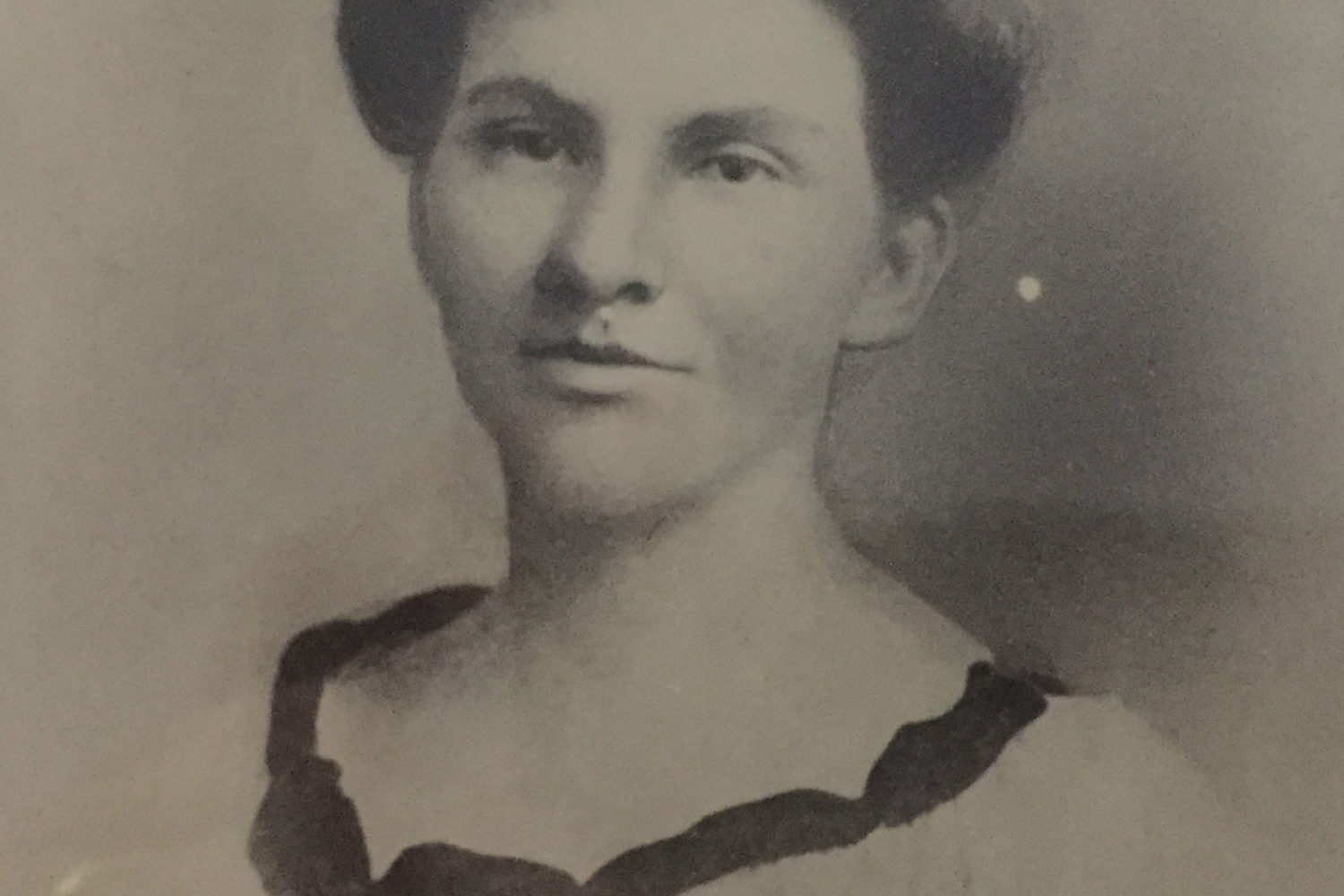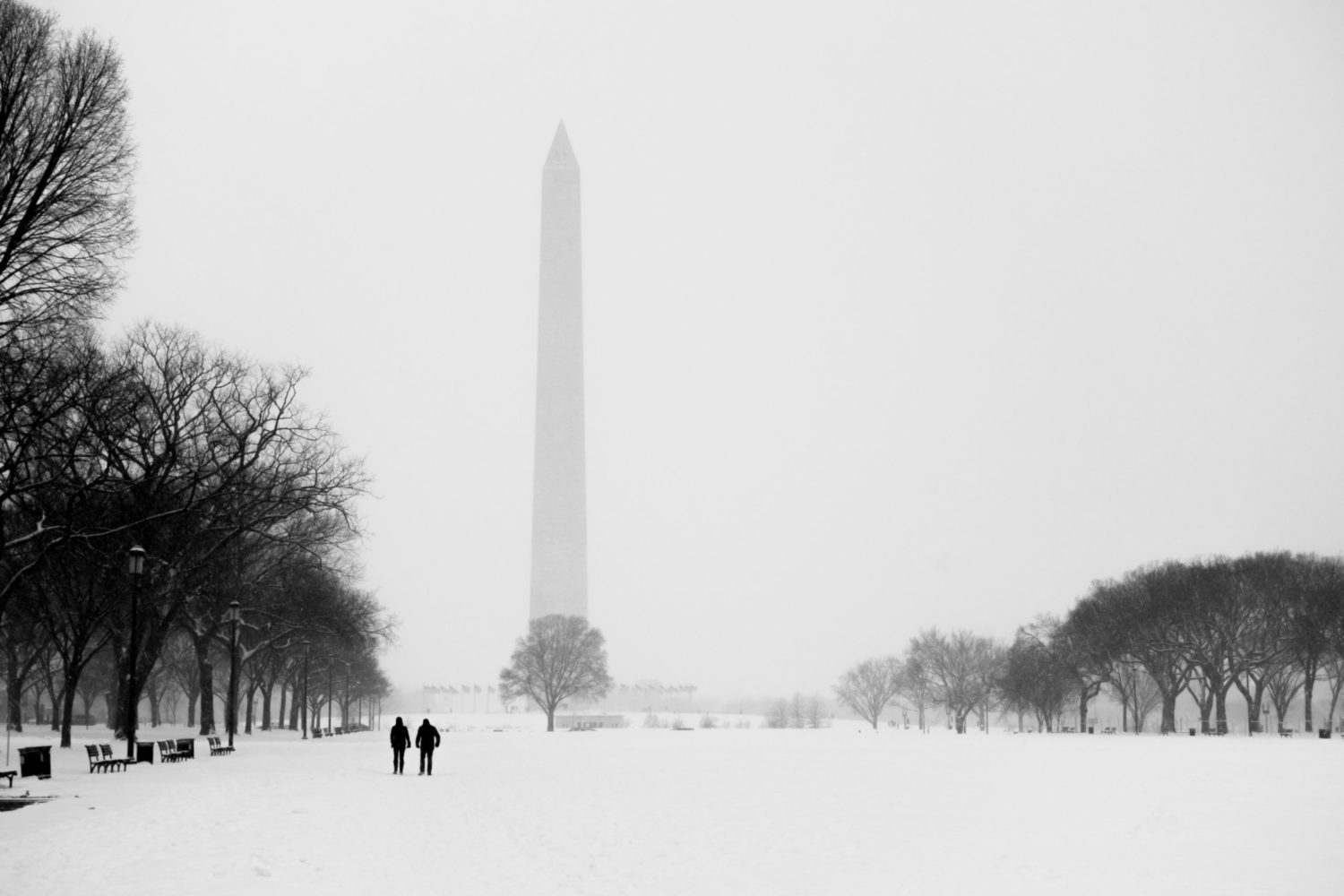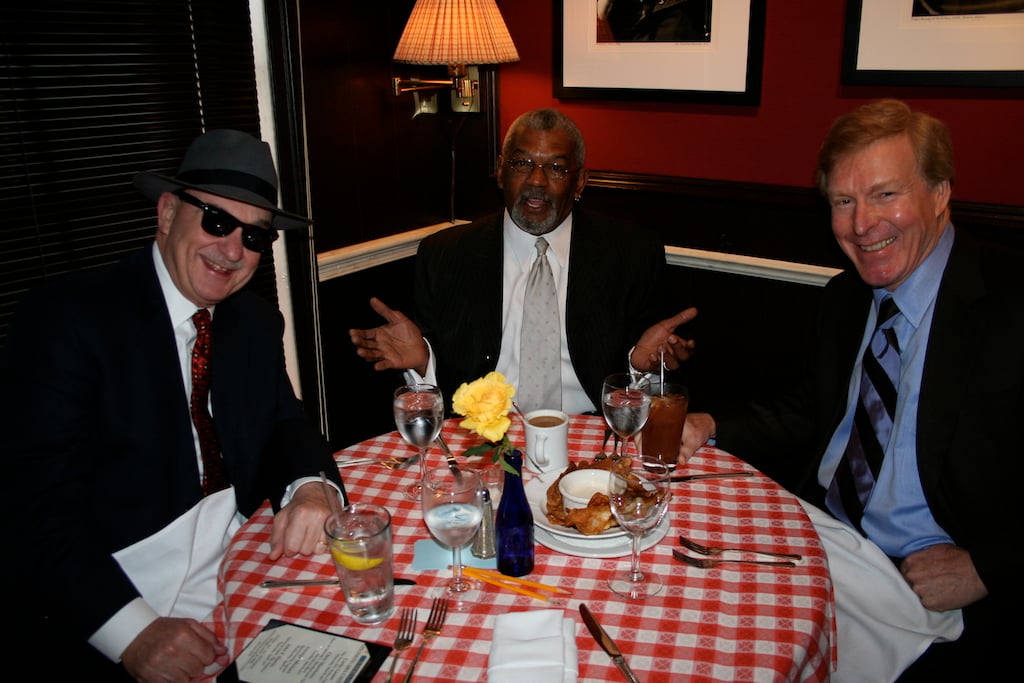Everybody knew him as Willard!—usually with an exclamation mark. He didn’t need a last name, although for the record it was Scott. Willard Scott.
I met him when I joined the staff of WRC-TV in 1974. He didn’t look like other people on TV in the 70s. A big guy, six feet two, pudgy and balding, he lumbered around the building cracking jokes and slapping backs.
He lived on a farm fifty miles outside of town, so he went out to dinner between newscasts, always taking someone with him. One day in the newsroom I heard “Hey Archie, let’s go have dinner tonight.” Willard picked the Old Europe, a venerable German restaurant in upper Georgetown. The owner’s jaw dropped as we barged in. Every head in the place turned as we sat down. Pretty soon he started conversations with diners on the other side of the room. After numerous beers, Willard got up on his chair and imitated a go-go dancer.
I loved it. He made me feel like part of the team, even though I was a rank amateur. He told me he liked my feature stories, including a series about a trained pig, giving me a much-needed pep talk and encouragement to keep going.
He used those dinner breaks to connect, the same way he connected with thousands of charities and community events during his weather segments. Every night he held up a jar of jelly or a funny hat or a special flower to plug a local group. Willard always wore a giant flower during his local news segments. I once reported on a group of elementary school kids producing a school newscast. The third grader reporting the weather pinned a giant flower in his lapel. The studio anchors and crew roared as Willard ad-libbed advice to the kid to get a good agent. His forecasts included gales of off-screen laughter and chuckles. Every ratings period he ripped off his toupee and threw it at the camera.
NBC hired a new boss from Los Angeles to shake things up in Washington. The new boss immediately fired a cornball sports anchor. Then he focused on Willard. Wiser heads prevailed. “You can’t fire Willard; he’s the heart of the station.” Willard was a home-grown product of Alexandria, Virginia. His fans grew up with him, watching Willard perform as Bozo in the early ’60s, or meeting him as the original Ronald McDonald (replaced, he joked, by a thinner guy). Those kids tuned in a few years later to his stint in one of radio’s most legendary partnerships, the Joy Boys.
Willard joined NBC as a page, back when the network hired college students to give tours and run errands. His voice won him a try out as an NBC announcer. I once heard a late 1950s aircheck of Willard emceeing a big band concert at Glen Echo Park for NBC radio. He had smooth golden tones, a regular Don Pardo. He knew how to play it straight.
He didn’t want to play it straight. At American University he met his lifelong friend Ed Walker, AU’s first blind student. The two talked and bantered and traded jokes. It took a while for Willard to figure out Ed was blind.
The lifelong pals pulled pranks, wrote radio parodies, and performed a radio show together. They loved to tell the story of the night Willard let Ed drive his new car with his blind friend steering and Willard directing.
Their friendship morphed into the Joy Boys, a fondly remembered radio show that still provokes laughs today. Don’t take my word for it. You can listen on You Tube. After a rocky start, WRC moved the boys to nights. The lack of management prying eyes gave them unbridled freedom. Their run lasted from the late 50’s to 1972, when some genius decided to change the format to Top 40 and pink-slipped the team.
By this time, Willard had the weather job. He lucked into it when the previous forecaster abruptly quit. Few people took TV weather seriously in the ’70s. Across the country weather reports came from puppets, starlets, or stand-up comics. Willard combined community plugs, and some laughs with the forecast.
He knew how to be a friend. He took an interest in a young guy named Al Roker, hired to give the weather on DC’s feisty independent station WTTG, Channel 5. Al enjoyed some of his own dinners with Willard between 1976 and 1978. Willard helped arrange Al’s big break: the weather job at the NBC owned station in Cleveland.
Willard wrapped his arms around Jim Vance, in Vance’s days as a cub reporter.
The other night, Channel 4 ran a clip of Vance talking about Willard’s final WRC newscast before moving to New York. Vance recalled Willard came into the newsroom with a jar of something that looked like water. He poured some for Vance and co-anchor Jim Hartz plus a good dose for himself. The three men knocked back moonshine. Vance indicated he didn’t remember much else about the news that night.
Vance didn’t mention on that last newscast he and Willard started talking about old times on the air and both men choked up. The city teared up as well when Willard announced his move to the Today Show. It made the front page of the Washington Post. The network wanted Willard to warm up the morning show. He certainly did, in spite or maybe because of a rocky relationship with Today anchor Bryant Gumbel.
WRC sent me to New York to interview Willard not long after he started at Today. He had the crew laughing and the backstage people in the palm of his hand. A limo picked him up in the early morning to take him to the studio. In the interview he laughed that the limo only went one way. During the interview he sat me on his lap. He later told me he thought my movie review gig would really work out for me. When the show finished, he had to get home on his own. Willard sometimes walked, working the crowd like the mayor at the Easter Parade.
Ironically, the network traded Willard for Bob Ryan, a scientist who took weather seriously while often revealing a wicked sense of humor. At WRC starting in the ’80s, Bob Ryan became the most successful weatherman in Washington history. As weather became science, Willard stepped aside for the young guy he mentored in DC in the ’70s, Al Roker. Willard plugged 100-year birthdays and traveled the country, while staying connected to his old friends. Over the years I picked up voicemails or opened notes from out of the blue.
Willard loved his farm and the state of Virginia. One weekend in the ’70s he invited the entire newsroom to come out for peanut soup and Willard-sized drinks. He sometimes burst into a chorus of “In the Blue Ridge Mountains of Virginia.” I understand his family brought him back to that farm for his final days. I have a vision of him sitting with a glass of something strong, listening to a cassette of the Joy Boys, laughing.

